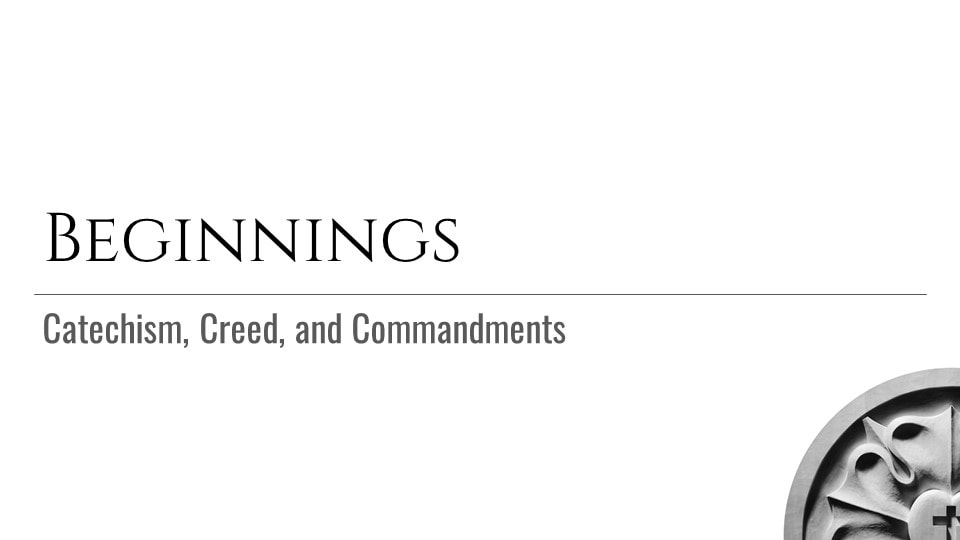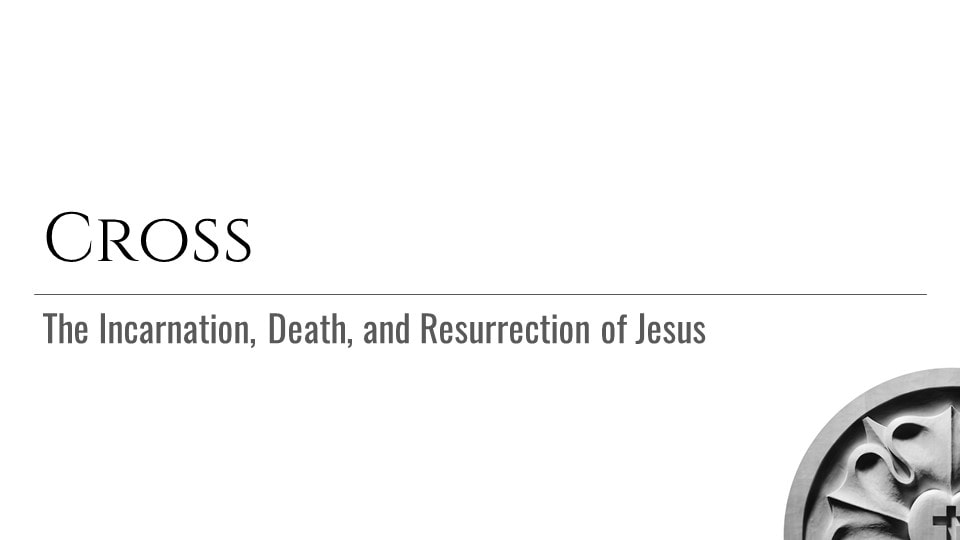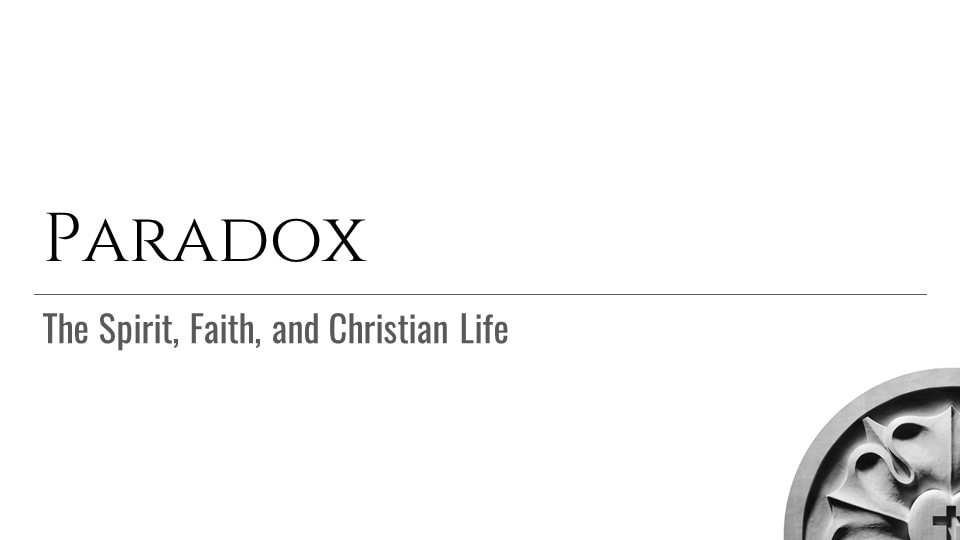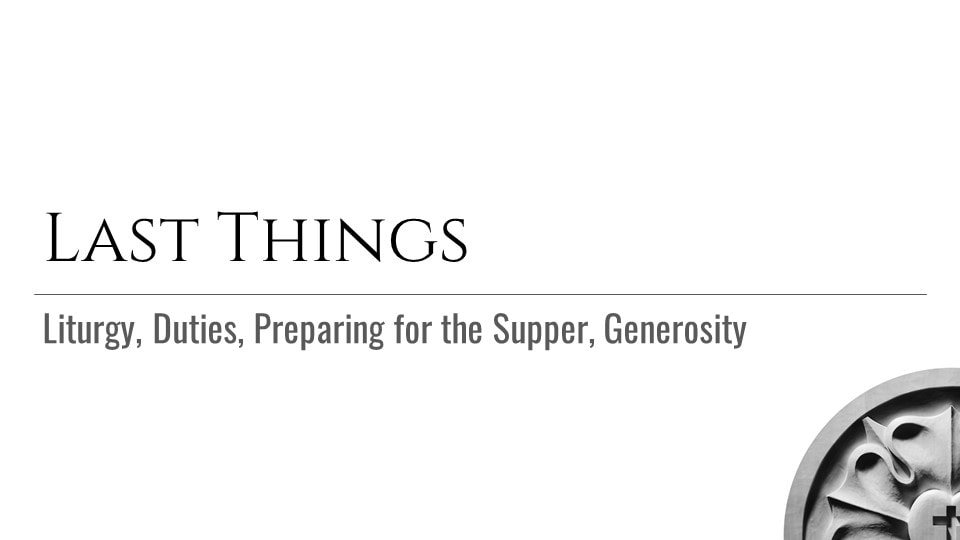The Catechumenate |
“Go therefore and make disciples of all nations, baptizing them in the name of the Father and of the Son and of the Holy Spirit, teaching them to observe all that I have commanded you. And behold, I am with you always, to the end of the age.”
-Jesus
StructureThe Catechumenate is the process by which the Church makes disciples of Jesus. From the earliest days of the Christian Church, the catechumenate has served as the process for initiating the Christian life and reception into the fellowship of the Church by Baptism, Confirmation, and participation in the Eucharist (Lord’s Supper). Catechumens spend time studying and reflecting on the Catechism, which is a brief summary of what the Bible teaches concerning God’s will for our lives (Ten Commandments); God’s work on our behalf (Apostles’ Creed); Prayer (Lord’s Prayer); God’s sacramental encounter with us (Holy Baptism, Confession, the Sacrament of the Altar); and the shape of the Christian life. At St. John’s, the Catechumenate is divided into three sections, punctuated by rituals that signal the beginning of a new course of discipleship.
The time of inquiry and the time of enculturation are not defined by a set schedule. During the time of inquiry, catechumens are investigating the Christian faith and beginning to participate in Christian worship. The time of enculturation is when the catechumen is growing into the life of the congregation and participating fully in worship. |
DidacheThe heart of the Catechumenate is a course of study called Didache (dih - dah - KAY), which is the Greek word for “teaching.” In the book of Acts, we are told that the first disciples “devoted themselves to the apostles' didache and the fellowship, to the breaking of bread and the prayers” (Acts 2:42). The Didache course begins with the Rite of Enrollment to the Catechumenate. This is a prayer and blessing in our regular Sunday worship service, that the Catechumens’ study and reflection would be fruitful. Over the next twelve weeks, Catechumens will spend time in the basic teachings of Jesus taken from the Bible and summarized in the Catechism. Didache concludes with the Rites of Initiation: Baptism, Confirmation, and Eucharist. Baptism is for anyone who has not been baptized in the name of the Triune God. For those who have been baptized in another church fellowship, Confirmation is the opportunity to affirm the faith of the Christian Church, and to receive a blessing for Christian life. Eucharist is the term used in the early Church for the Lord’s Supper. Following Baptism and/or Confirmation, Catechumens are welcome to participate in the fellowship of our congregation at the Lord’s altar. |
Sponsors
At St. John’s, Christian sponsors will accompany Catechumens throughout their journey of discipleship. They are available for informal conversation and for encouragement and support. Sponsors also pray for the catechumens and help them grow into the life of our congregation after they are welcomed into our fellowship.
Lenten Didache Sessions
|
|
| ||||||||||||||||||||||||||||||||||||






